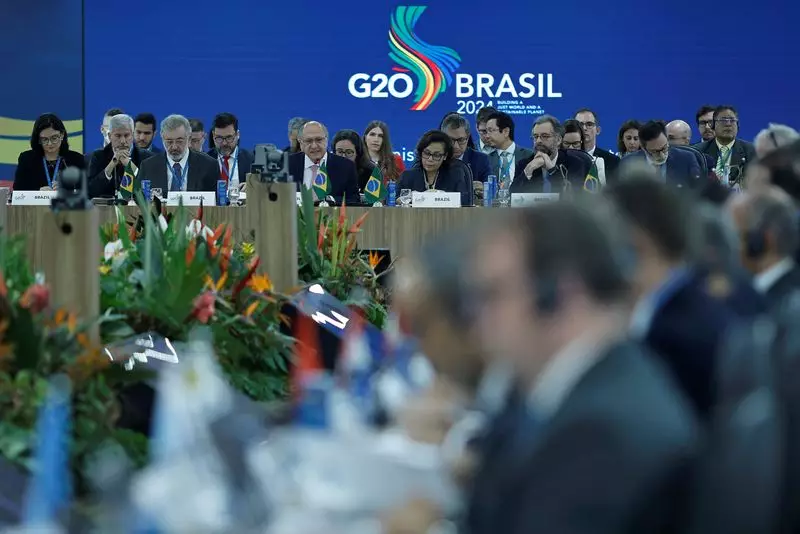In a significant move towards fostering sustainability in global economic frameworks, G20 trade ministers convened in Brasilia to discuss crucial initiatives aimed at enhancing international trade and investment. Emphasizing the importance of sustainable development, the ministers struck a consensus on the necessity of reforming the World Trade Organization (WTO) to create a more efficient and responsive conflict resolution process. This initiative, driven by Brazil’s Vice President and Trade Minister Geraldo Alckmin, aligns with the broader objectives that the G20 aims to champion in forthcoming dialogues, particularly at the impending summit in Rio de Janeiro.
A notable breakthrough from this meeting was the agreement to prioritize women’s inclusion in international trade. This marks a pivotal moment as it is the first time the G20 has made explicit commitments to integrate gender equality into trade policies. Brazilian President Luiz Inacio Lula da Silva’s insistence on making this an overarching principle reflects an evolving recognition of the economic impact of including women in trade activities. This focus is not merely symbolic; it aims to create tangible pathways for women entrepreneurs and workers to engage in and benefit from global markets.
The Climate Agenda
Brazil’s upcoming role in hosting the COP30 climate talks underscored the urgency with which G20 members addressed the intersection of trade and climate action. Emphasizing environmentally sustainable practices, the trade ministers called for investments that not only boost economic growth but also contribute positively to the planet. This dual focus on sustainability and inclusivity sets a precedent that could redefine trade norms, steering them towards a more holistic approach that integrates environmental stewardship with economic incentives.
The meeting also underscored a collective commitment to reforming global trade governance structures. With an emphasis on developing a fair and transparent multilateral trading system, the G20 ministers are advocating for an enhanced role of the WTO. This effort aims to ensure that global trade operates on principles of equality, accessibility, and sustainability. The statement made by the Brazilian government post-meeting reaffirms their dedication to creating a regulatory environment that promotes equitable competition and fosters a diverse marketplace.
Interestingly, the trade ministers’ discussions were restrained concerning contentious global political issues, such as the Russia-Ukraine conflict and the situation in Gaza. While some participants expressed a desire to engage in these topics within the G20 framework, a consensus emerged that sidestepped divisive conversations, allowing the ministers to focus on areas of common interest. This strategic avoidance highlights the G20’s role as a platform for constructive dialogue rather than a battleground for international disputes.
The G20 meeting in Brasilia marks a significant step forward in establishing a framework that prioritizes sustainable development and inclusion within global trade. As nations prepare for the upcoming summit in Rio, the commitment to address both economic and social dimensions of trade signals a nuanced approach to contemporary global challenges. The outcomes of this meeting may serve as a blueprint for future initiatives aimed at creating a balanced and inclusive global trade environment.

